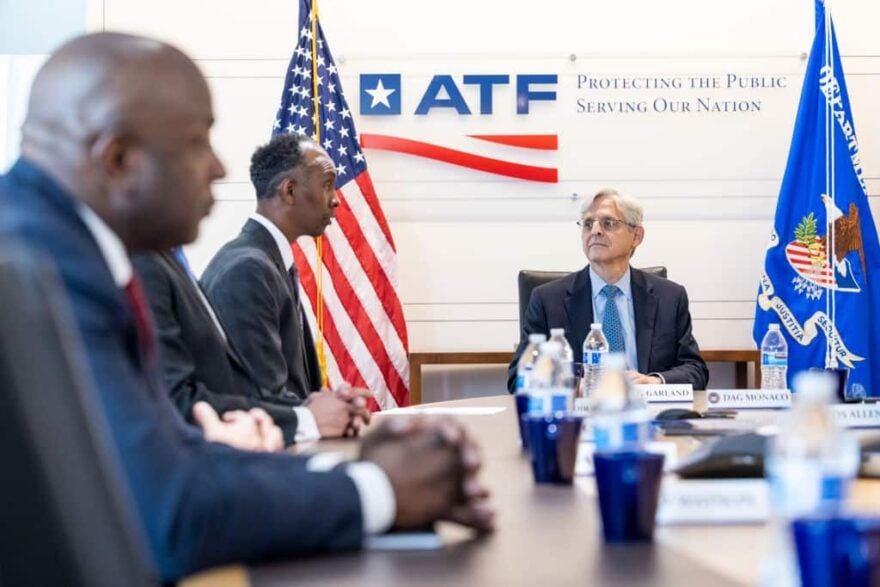Key Points
- The ATF has close to one billion gun sale records in a digitized database.
- They obtain the records from gun shops if/when they close.
- While it’s illegal to maintain a federal gun registry, this comes dangerously close.
Somewhere in West Virginia, at a site run by the federal government, the ATF has a collection of private records and receipts from gun shops that go out of business, according to a new report from the Washington Free Beacon. If/When shops shutter, the ATF moves in and collects.
They now manage a digitized database of close to one billion firearm purchase records.
What they ultimately plan on doing with those records is unclear —but a federal firearm registry is prohibited by law (the ATF claims the database is only used to “trace firearms used in crimes”). Rep. Michael Cloud (R-TX) led an investigation into the ATF following a previous report that Biden and Co. were stockpiling firearm transactional records.
“A federal firearm registry is explicitly banned by law. Yet, the Biden administration is again circumventing Congress and enabling the notably corrupt ATF to manage a database of nearly a billion gun transfer records,” Cloud told the WFB. “Under the president’s watch, the ATF has increased surveillance on American gun owners at an abhorrent level. The Biden administration continues to empower criminals and foreign nationals while threatening the rights of law-abiding Americans. It’s shameful and this administration should reconsider its continued attacks on American gun owners.”
Late last year, Cloud sent a letter to the ATF with dozens of co-signers, expressing concern over the potential danger and abuse that collecting and digitizing that kind of information presents. It’s just waiting for someone — or some government — to abuse it.
“Indeed, current regulations require [federal firearm licensees] to send firearm transaction records to the ATF when an FFL goes out of business. However, Congress has also made it clear in the Firearms Owners’ Protection Act that the federal government shall not create a federal gun registry and has prohibited ATF from creating any centralized databases with its funding,” Cloud wrote.
“For decades, FFLs have only been required to maintain firearm transaction records for 20 years, after which they can be destroyed. Many gun owners value the privacy afforded by the destruction of these records of their law-abiding firearm transfers after this period,” he added.
But now the Biden administration is scooping those records up while simultaneously trying to weaken the gun privacy laws, pushing for FFLs to keep sales records indefinitely.
So the fate of every record for a firearm purchase would be a federal storage site in West Virginia.
“Make no mistake—this is clear evidence that a partial national gun registry exists,” said Aidan Johnston, director of federal affairs for Gun Owners of America. “If the American people don’t stand up for their rights now, Biden’s anti-gun ATF will be able to track gun owners, infringe on our rights, and potentially even confiscate our firearms.”
Another abuse of power from the Biden administration.

